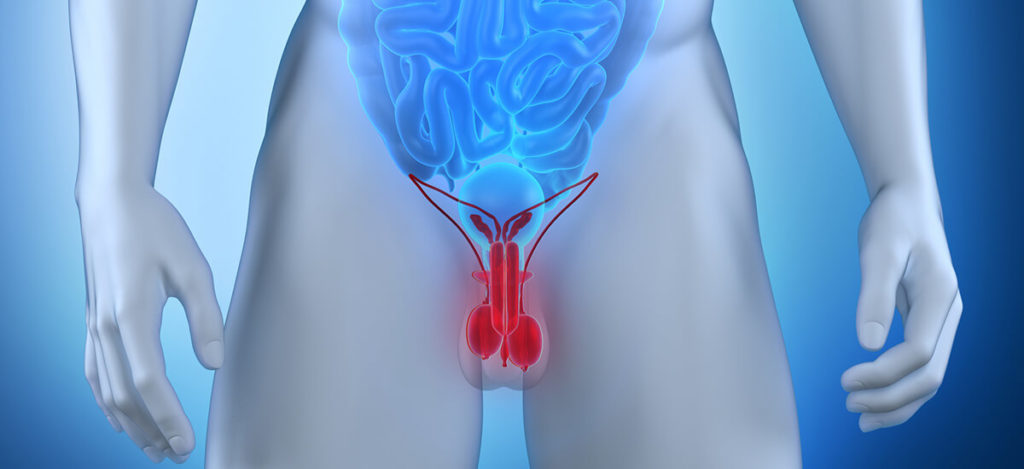This study will examine the safety and effectiveness of treatment with an experimental vaccine for melanoma, a type of cancer that arises from pigmented areas, usually of the skin. Melanoma tumors produce a protein called gp100. Vaccination with this protein may boost the immune system’s fight against the cancer. The vaccine injections are mixed with an oil-based substance called Montanide ISA-51, which is intended to increase the immune response to the peptide.
Official Title
Immunization of Patients with Metastatic Melanoma Using a Recombinant GP100 Protein (184V) and a Class I Restricted Peptide from the GP100 Antigen
Conditions
– Melanoma
Study Type
Interventional
Study Design
Treatment, Safety/Efficacy
Further Details
Patients 16 years of age and older with metastatic melanoma (melanoma that has spread beyond the original tumor site) that is not responding to conventional treatment may be eligible for this study. Candidates will be screened with a physical examination and blood and urine tests. An electrocardiogram (EKG), x-rays and other imaging studies will be done if recent results are not available. Some candidates may require heart tests, such as a cardiac stress test or echocardiogram, or lung function tests. In addition, all candidates will be tested for HLA tissue type. All patients will receive the gp100 protein vaccine. Patients who have tissue type HLA-A0201 will be randomly assigned to receive either 1) the gp100 protein alone, or 2) the gp100 protein plus gp100 peptide (a peptide is a part of the protein). Each treatment consists of four vaccine injections every 3 weeks for four times. The shots are given under the skin of the thigh. At each clinic visit, patients are monitored with blood tests and physical examinations to look for treatment side effects. Patients also undergo leukapheresis-a procedure to collect white blood cells-to evaluate how the vaccines affect the action of the immune system cells. For this procedure, blood is drawn through a needle in the arm, similar to donating blood. The blood goes through a machine that separates out the lymphocytes (white blood cells), and the rest of the blood is returned through a needle in the other arm. In addition, some patients may undergo a biopsy-surgical removal of a small piece of tissue under local anesthetic-of normal skin and tumor or lymph node tissue to examine the effects of the vaccines on the tumor immune cells. Three to four weeks after completing the course of injections, patients have a physical examination and scans to evaluate the tumor’s response to treatment. Patients whose tumors have stabilized or shrunk may continue immunizations for up to 12 months total (another 3 courses). Patients whose disease has not improved after the first course of therapy and who have not previously received high-dose interleukin-2 (IL-2) treatment may then be given protein plus peptide along with IL-2 if they meet the criteria for administration of IL-2. This substance may increase the immune reaction to the vaccine. IL-2 is given intravenously (through a small tube placed in a vein) every 8 hours for up to 4 days after each vaccine injection. It will be repeated every 3 weeks for four times (one treatment course). IL-2 therapy requires a 1-week hospital admission. Patients whose tumors respond to this therapy may receive a total of four courses of vaccinations plus IL-2. Patients whose disease does not respond to therapy or recurs after treatment will be taken off the study and will be referred back to their referring physician or to another study, if an appropriate one is available. Patients with metastatic melanoma will be immunized with a recombinant gp100 protein (184V). Patients who are HLA-A*0201- will receive the gp100 protein (184V) alone. Patients who are HLA-A*0201+ will be randomized to receive the recombinant gp100 protein (184V) alone or to receive the recombinant gp100 protein (184V) emulsified with the class I restricted gp100:209-217 (210M) peptide. Patients will be evaluated for clinical response. Patients who progress while receiving immunization alone may receive, if eligible, the same immunization plus high dose IL-2. Genders Eligible for Study: Both Criteria INCLUSION CRITERIAAny patient age greater than or equal to 16 with measurable metastatic melanoma who has progressed while receiving or following standard treatment, which may include IL-2 if it is indicated given the patient’s disease status, or it may not include IL-2 if the patient’s clinical status has not required immunotherapy with high dose IL-2.Has an expected survival of greater than six months will be considered.Serum creatinine of 2.0 mg/dl or less,Total bilirubin 2.0 mg/dl or less, except in patients with Gilbert’s Syndrome who must have a total bilirubin less than 3.0 mg/dl.WBC 3000/mm3 or greater,Platelet count 90,000 mm3 or greater,Serum AST/ALT less then three times normal,ECOG performance status of 0 or 1 or 2.Patients of both genders must be willing to practice effective birth control during this trial.Patients must be able to understand and sign the Informed Consent document, or the parent or guardian of patients less than 18 years must be able to understand and sign the Informed Consent document.EXCLUSION CRITERIAPatients will be excluded:Who are undergoing or have undergone in the past 3 weeks any other form of systemic therapy for their cancer, or have undergone nitrosurea therapy within the past 6 weeks. All patients’ toxicities must have recovered to a grade 1 or less. Patients may have undergone minor surgical procedures within the past 3 weeks, as long as all toxicities have recovered to grade 1 or less.Who have active systemic infections, symptomatic cardiac disease, autoimmune disease or any known immunodeficiency disease.Who require systemic steroid therapy.Who are pregnant or lactating (because of possible side effects on the fetus).Who are known to be positive for hepatitis BsAG or HIV antibody (because of possible immune effects of these conditions).Who have any form of primary or secondary immunodeficiency as evidenced by normal lymphocyte counts (greater than 500/mm3), normal WBC (greater than 3,000/mm3) or lack of opportunistic infections. (The experimental treatment being evaluated in this protocol depends on an intact immune system. Patients who have decreased immune competence may be less responsive to the experimental treatment and more susceptible to its toxicities.)Who have previously received any form of gp100 peptide vaccines.Who have known hypersensitivity to any of the agents used in this study.ELIGIBILITY FOR ADMINISTRATION OF IL-2Patients with EKG abnormalities, symptoms of cardiac ischemia or arrhythmias or age greater than 50 years will have a normal stress cardiac test (stress thallium, stress MUGA, dobutamine echocardiogram or other stress test).Patients with recent prolonged history of cigarette smoking or symptoms of respiratory dysfunction must have a normal pulmonary function test as evidenced by a FEV1 greater than 60% predicted.Patients may not have active major medical illnesses such as cardiac ischemia, myocardial infarction, cardiac arrhythmias, obstructive or restrictive pulmonary disease.Patients may not have received prior high dose IL-2 therapy (equal to 600,000 IU/kg).Patients must be willing to sign a Durable Power of Attorney.Serum creatinine of 2.0 mg/dl or less,Total bilirubin 2.0 mg/dl or less, except in patients with Gilbert’s Syndrome who must have a total bilirubin less than 3.0 mg/dl.WBC 3000/mm3 or greater,Platelet count 90,000 mm3 or greater,
Study Start
Eligibility & Criteria
Genders Eligible for Study: Both Criteria INCLUSION CRITERIAAny patient age greater than or equal to 16 with measurable metastatic melanoma who has progressed while receiving or following standard treatment, which may include IL-2 if it is indicated given the patient’s disease status, or it may not include IL-2 if the patient’s clinical status has not required immunotherapy with high dose IL-2.Has an expected survival of greater than six months will be considered.Serum creatinine of 2.0 mg/dl or less,Total bilirubin 2.0 mg/dl or less, except in patients with Gilbert’s Syndrome who must have a total bilirubin less than 3.0 mg/dl.WBC 3000/mm3 or greater,Platelet count 90,000 mm3 or greater,Serum AST/ALT less then three times normal,ECOG performance status of 0 or 1 or 2.Patients of both genders must be willing to practice effective birth control during this trial.Patients must be able to understand and sign the Informed Consent document, or the parent or guardian of patients less than 18 years must be able to understand and sign the Informed Consent document.EXCLUSION CRITERIAPatients will be excluded:Who are undergoing or have undergone in the past 3 weeks any other form of systemic therapy for their cancer, or have undergone nitrosurea therapy within the past 6 weeks. All patients’ toxicities must have recovered to a grade 1 or less. Patients may have undergone minor surgical procedures within the past 3 weeks, as long as all toxicities have recovered to grade 1 or less.Who have active systemic infections, symptomatic cardiac disease, autoimmune disease or any known immunodeficiency disease.Who require systemic steroid therapy.Who are pregnant or lactating (because of possible side effects on the fetus).Who are known to be positive for hepatitis BsAG or HIV antibody (because of possible immune effects of these conditions).Who have any form of primary or secondary immunodeficiency as evidenced by normal lymphocyte counts (greater than 500/mm3), normal WBC (greater than 3,000/mm3) or lack of opportunistic infections. (The experimental treatment being evaluated in this protocol depends on an intact immune system. Patients who have decreased immune competence may be less responsive to the experimental treatment and more susceptible to its toxicities.)Who have previously received any form of gp100 peptide vaccines.Who have known hypersensitivity to any of the agents used in this study.ELIGIBILITY FOR ADMINISTRATION OF IL-2Patients with EKG abnormalities, symptoms of cardiac ischemia or arrhythmias or age greater than 50 years will have a normal stress cardiac test (stress thallium, stress MUGA, dobutamine echocardiogram or other stress test).Patients with recent prolonged history of cigarette smoking or symptoms of respiratory dysfunction must have a normal pulmonary function test as evidenced by a FEV1 greater than 60% predicted.Patients may not have active major medical illnesses such as cardiac ischemia, myocardial infarction, cardiac arrhythmias, obstructive or restrictive pulmonary disease.Patients may not have received prior high dose IL-2 therapy (equal to 600,000 IU/kg).Patients must be willing to sign a Durable Power of Attorney.Serum creatinine of 2.0 mg/dl or less,Total bilirubin 2.0 mg/dl or less, except in patients with Gilbert’s Syndrome who must have a total bilirubin less than 3.0 mg/dl.WBC 3000/mm3 or greater,Platelet count 90,000 mm3 or greater.
Total Enrolment
75
Contact Details
[1] National Cancer Institute (NCI) (US)All content and media on the HealthEngine Blog is created and published online for informational purposes only. It is not intended to be a substitute for professional medical advice and should not be relied on as health or personal advice. Always seek the guidance of your doctor or other qualified health professional with any questions you may have regarding your health or a medical condition. Never disregard the advice of a medical professional, or delay in seeking it because of something you have read on this Website. If you think you may have a medical emergency, call your doctor, go to the nearest hospital emergency department, or call the emergency services immediately.







